August 19, 2025
Students from across the state explored coding games, detecting cyber threats, building underwater robots and more.
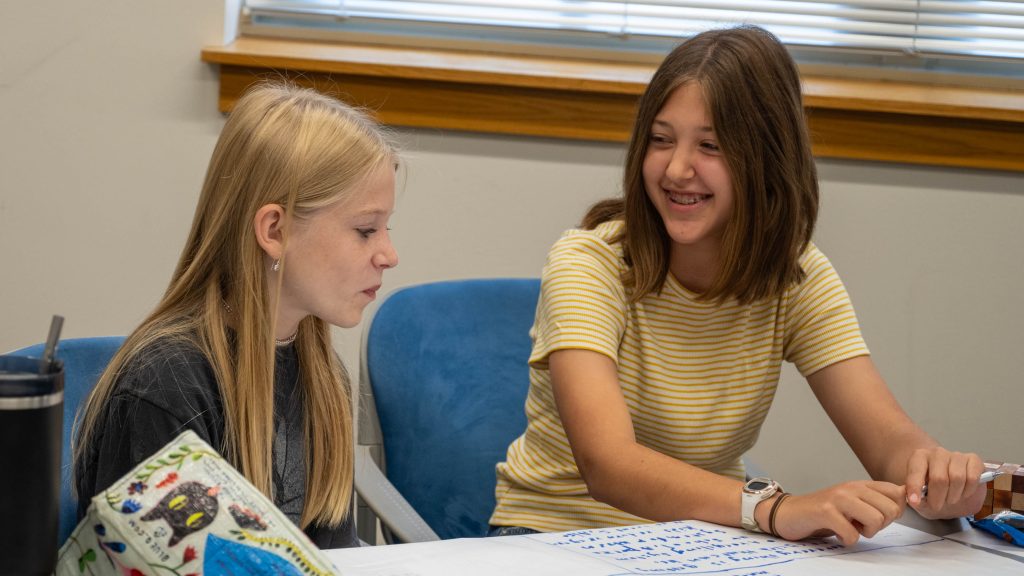
At Mizzou Engineering, we use the Missouri Method of learning by doing, teaching students about the future as they build it. The College has a tradition of sparking the curiosity of young people, giving them access to sophisticated tools and mentors, and helping them grow into tomorrow’s problem-solvers.
This summer, students from across Missouri came to Mizzou Engineering to try their hand at coding games, detecting cyber threats, building underwater robots and so much more in nine STEM-focused youth camps.
One of them was Roland Burkhart. A student at West Middle School in Columbia, he was inspired by the day’s task — find a solution to remove microplastics from the environment — to envision a smart robot to clean up targeted areas.
“It could, like, go across surfaces and pick out all the plastic and trash,” Burkhart said.
Burkhart and scores of other students took part in Mizzou Engineering youth camps this summer, where they engaged in hands-on projects and real-world problem solving. Ranging from elementary schoolers to high school seniors, the participants learned about different engineering disciplines from Mizzou faculty, students and researchers.
“We’re creating opportunities for kids to see themselves as future engineers,” said Professor Kevin Gillis. “They’re building, testing, thinking critically and having a blast doing it.”
AI and Neuro-Robotics
High schoolers were introduced to foundational concepts in artificial intelligence and data science. Through interactive coding exercises and machine learning projects, students saw how algorithms impact everything from social media to self-driving cars.
“This camp gives students a way to get started with the basics related to the invisible systems behind today’s technologies,” said Jack Kidnie, an undergraduate researcher in the Neural Engineering Laboratory who helped organize the camp.
“It’s about pulling back the curtain and providing a peek into the math and software basics related to AI and, importantly, what courses they could consider taking to learn about the technology,” co-organizer and undergraduate researcher Rhea Pookulangara said.
Kidnie and Pookulangara were assisted by PhD students David Fague and Vladimir ‘Walt’ Omelyusik.
Experiencing Environmental Engineering
In this camp led by Associate Professor Maryam Salehi, middle schoolers tackled real-world environmental challenges. Campers designed water filters, modeled the movement of pollutants, and explored ways engineering can support sustainability.
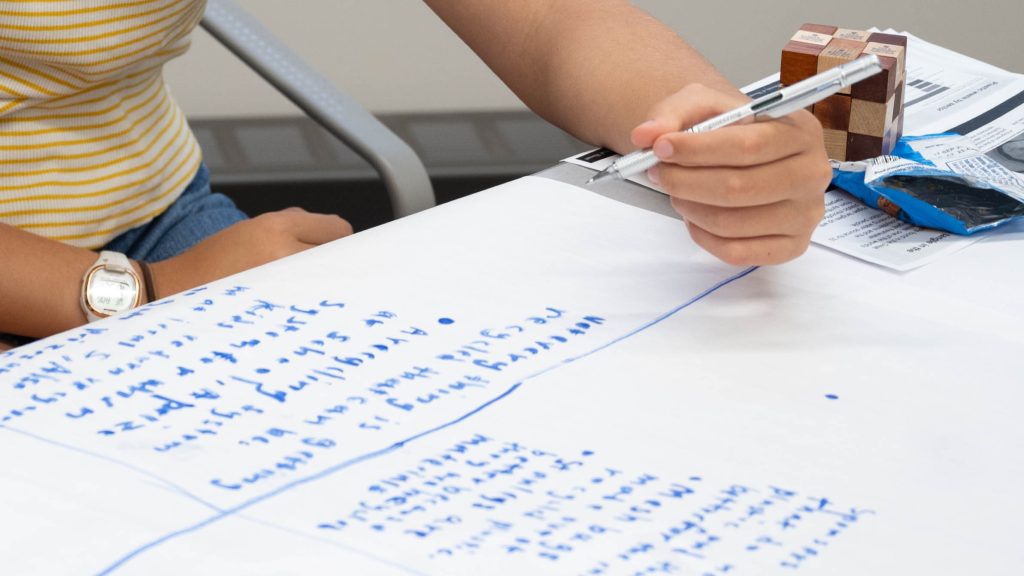
“Our goal is to show students that they can have a real impact on the environment through creative engineering solutions,” Salehi said.
Experiencing Electrical and Computer Engineering
Participants delved into the foundational principles of electrical circuits and electronics, gained practical experience with microcontrollers and embedded systems, and learned the essentials of the C programming language. They also explored AI-driven technologies and robotic systems through a series of hands-on projects and interactive lab tours. In addition to their technical activities, students visited Mizzou libraries and the MU Student Center, discovering how engineering is integrated into and enhances the broader campus experience.
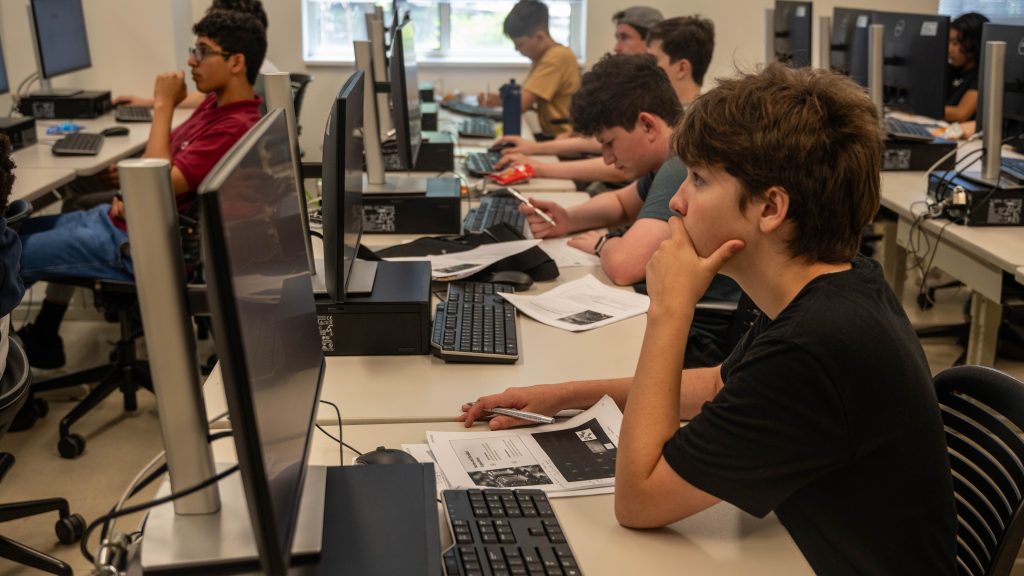
“We want students to understand how electronic circuits and computers drive the technology that surrounds us every day, and to inspire them to become creators and innovators rather than just consumers,” said Ali Shiri Sichani, assistant teaching professor in the Department of Electrical Engineering and Computer Science.
Hacker Tracker Cybersecurity Camp
Middle and high school students learned how to protect systems and detect threats during the camp led by Prasad Calyam, Curators’ Distinguished Professor and Gilliom Professor of Cyber Security. Cybersecurity experts from MOREnet and Boone County Cyber Crimes Task Force also addressed the students and shared interesting real-world cyberattack defense and digital forensics stories.
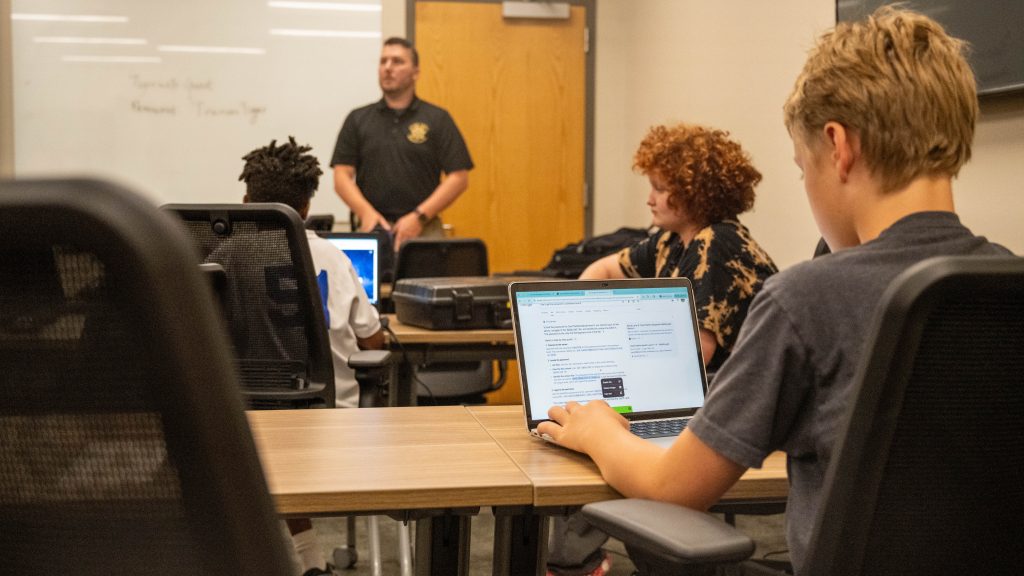
“Cybersecurity is about strategy, creativity and understanding the bigger picture,” Calyam said. “These students are getting a real glimpse of what it’s like to be a digital detective.”
Participants practiced network forensics, explored real-world attack simulations and learned basic ethical hacking principles.
Geospatial Science Camp
Students in grades 9-12 learned how digital mapping and spatial data can help solve global problems. They built interactive maps, used satellite imagery and completed several short projects focused on local data collection and decision making.
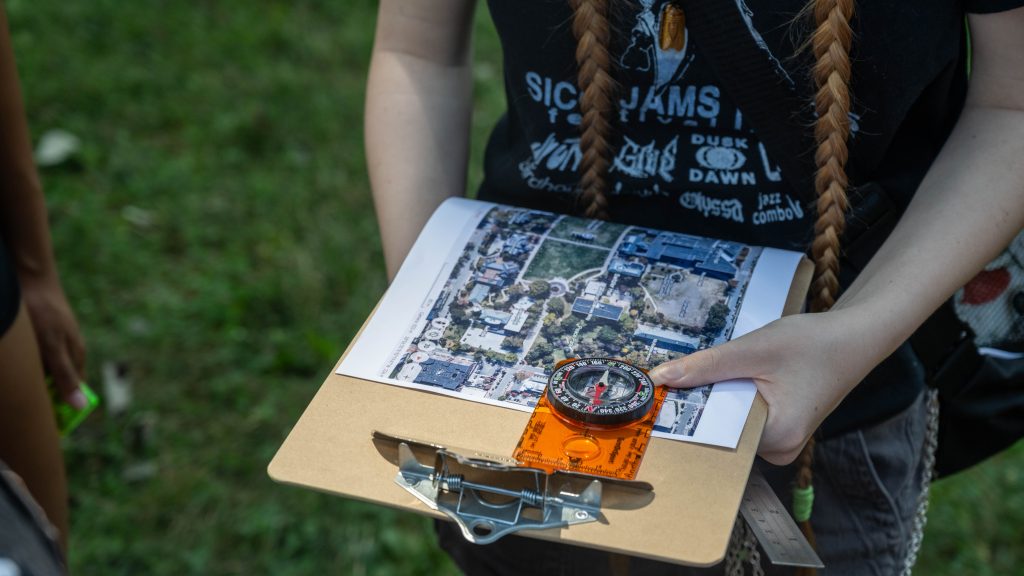
“Geospatial tools are shaping how we understand our world, from water management and food security to city planning,” said Assistant Professor Noel Aloysius. “It’s exciting to see young students learning to think spatially.”
Game Development Camp
High school students dove into the Unity game engine, Blender and Scripting to design and build their own video games under the guidance of Associate Teaching Professor Fang Wang and Assistant Teaching Professor Scottie Murrell.
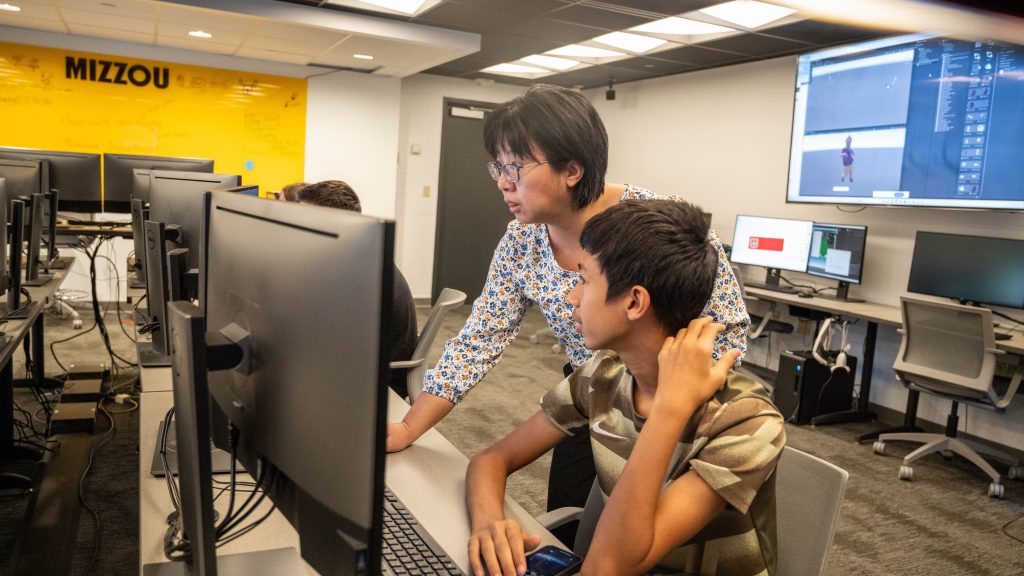
Game development builds problem-solving, logic, and design skills, with visualization bringing ideas to life – a fun and engaging way for beginners to learn,” Wang said. “And by the end of the week, these students had playable prototypes to be proud of.”
STEM Quest: Engineering Foundations
This camp was aimed at introducing students to the world of engineering, sparking their curiosity and giving them the tools to make informed choices about courses and careers as they progress through late middle school and high school.
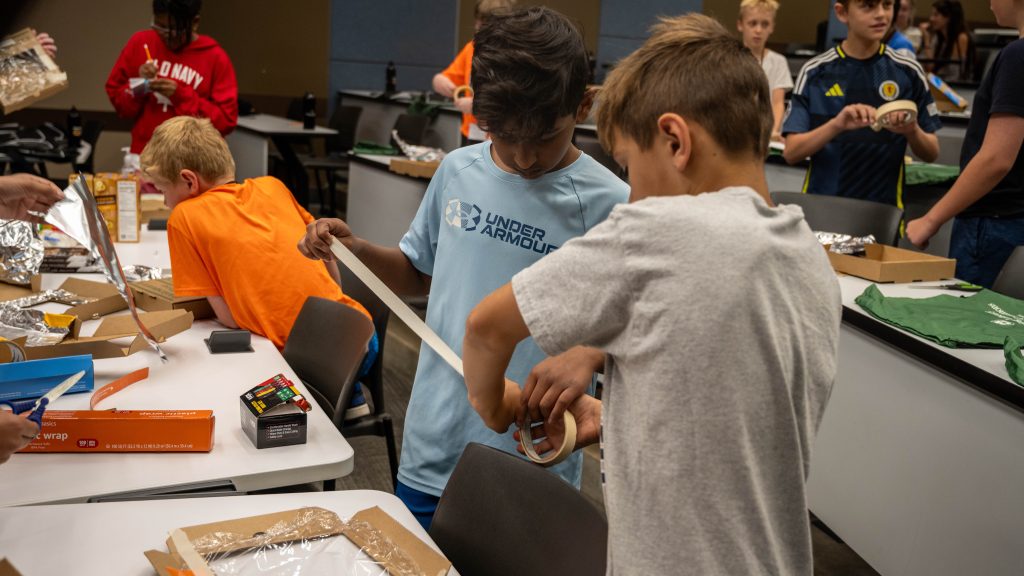
Mizzou Engineering graduate students introduced participants to fields of engineering application like medicine, manufacturing, energy, sustainability and technology.
“We guided them through activities related to drug delivery and machine learning, assisted them in building a Rube Goldberg machine and model Mars rovers, and sprinkled in some of wisdom pertaining to responsible and practical engineering along the way,” PhD student Lucas Kuehnel said.
Underwater Robotics Camp
Always a crowd favorite, the underwater robotics camp returned with two sessions to meet demand. Under Gillis’ supervision, members of the Army Ants high-school robotics team led students in grades 3-8 in constructing, testing and refining remotely operated vehicles to complete tasks underwater.
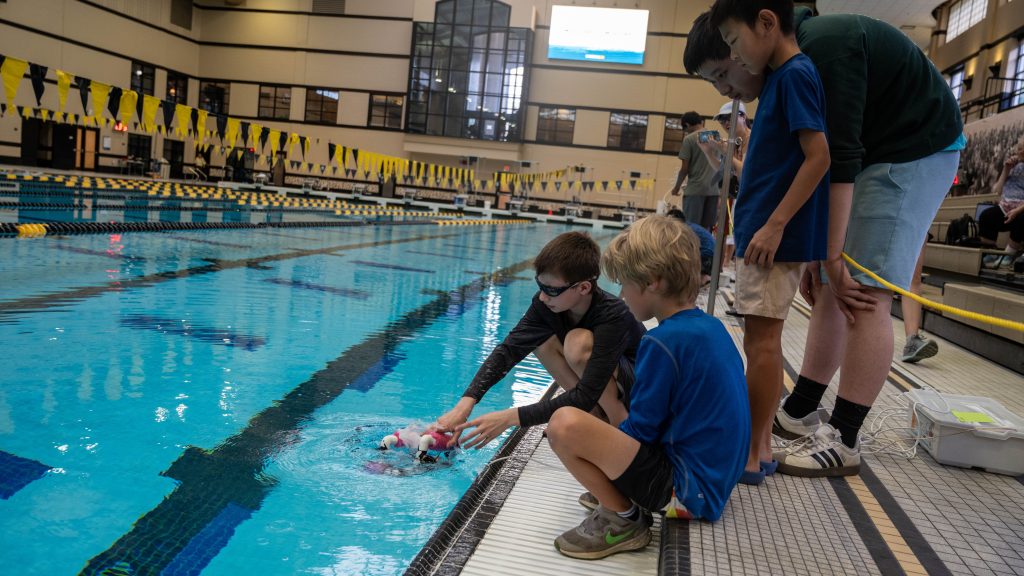
“Every robot that succeeds or fails teaches something important,” Gillis said. “Students experience trial and error, teamwork, and creative problem solving in real time.”
Whether students left with a new interest or a confirmed career path, each camp gave them a glimpse into engineering and permission to experiment, wonder and grow.
“The best part is seeing their eyes light up when something clicks,” Gillis said. “That’s the spark we hope they carry with them.”
Know an aspiring engineer who wants to build a better world? Register for fall camps starting in September!